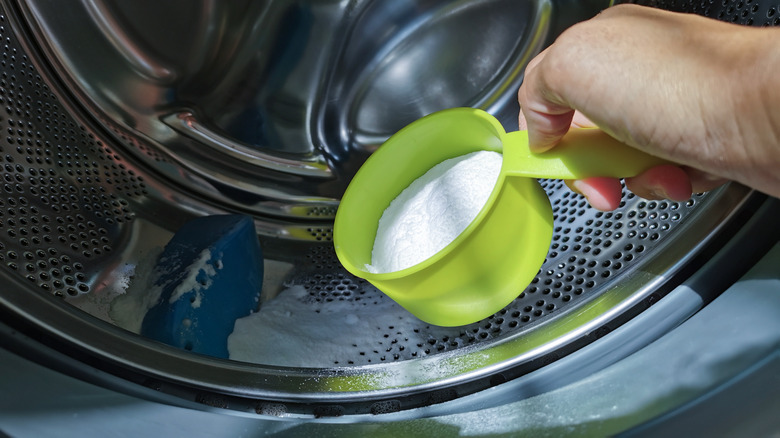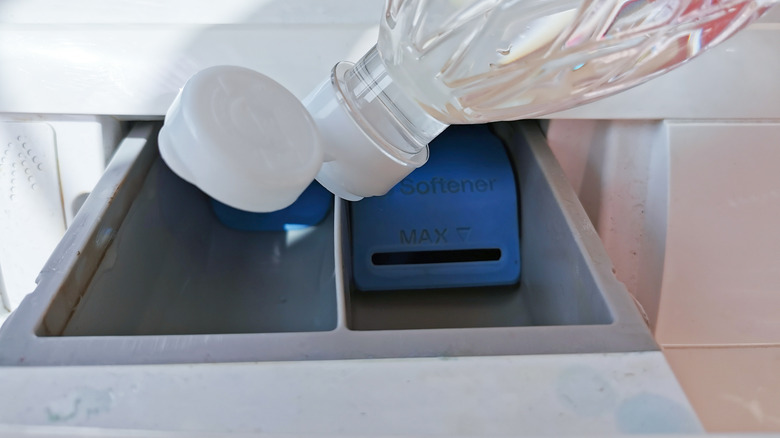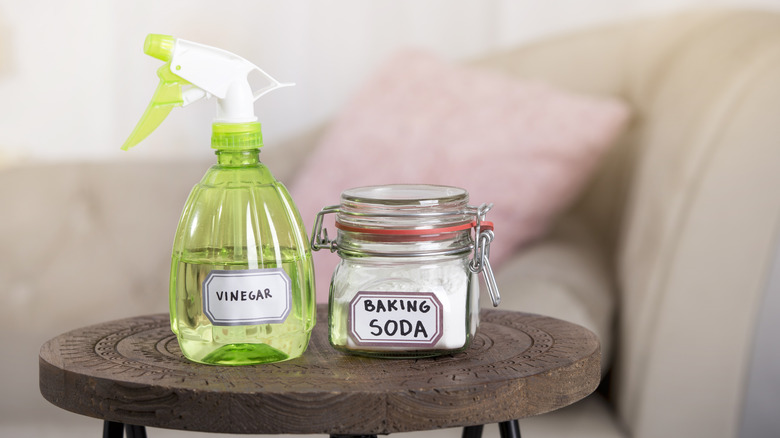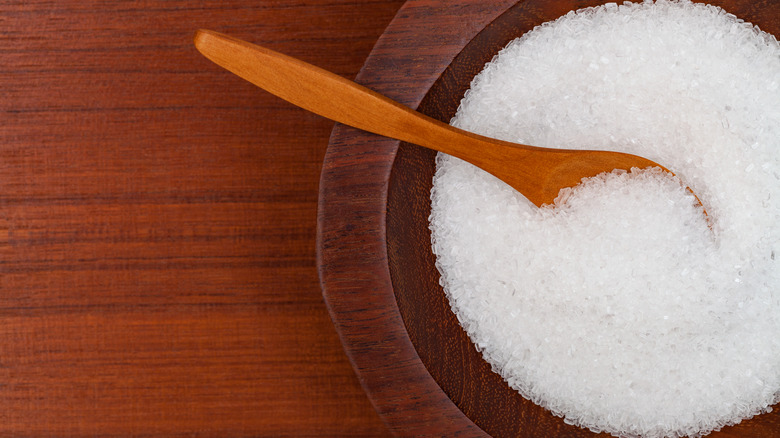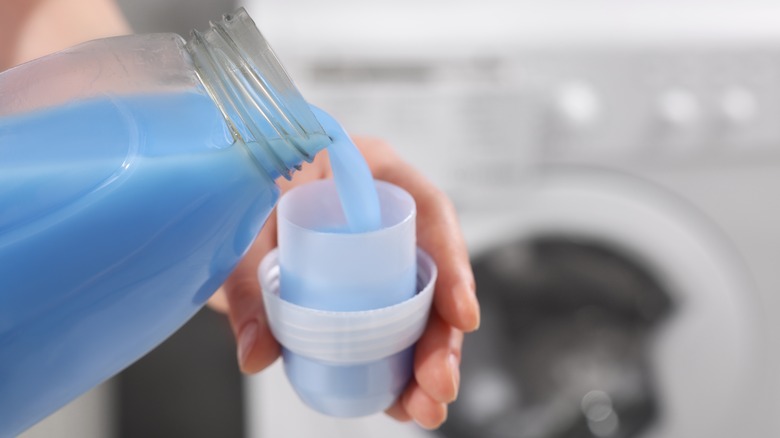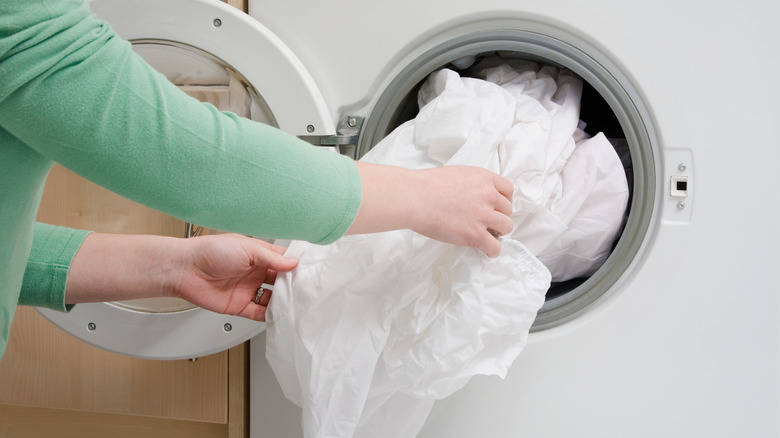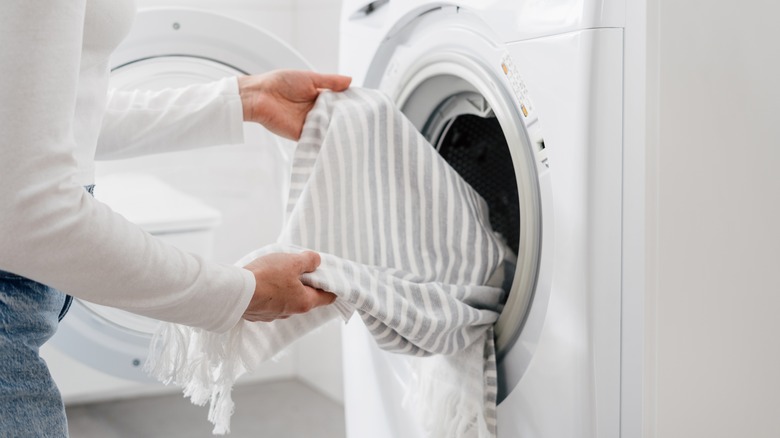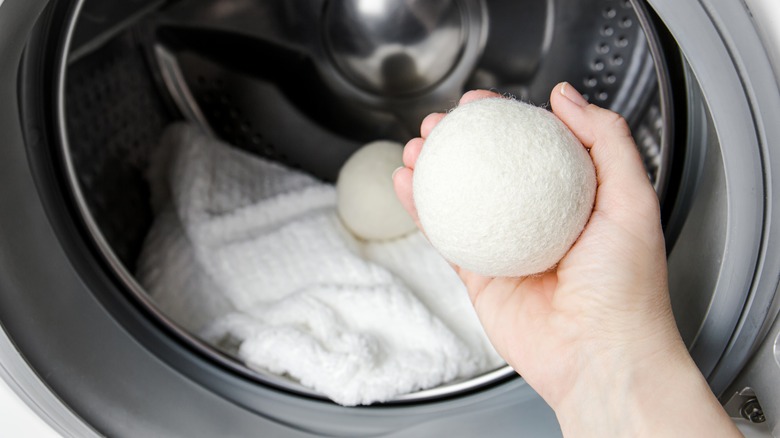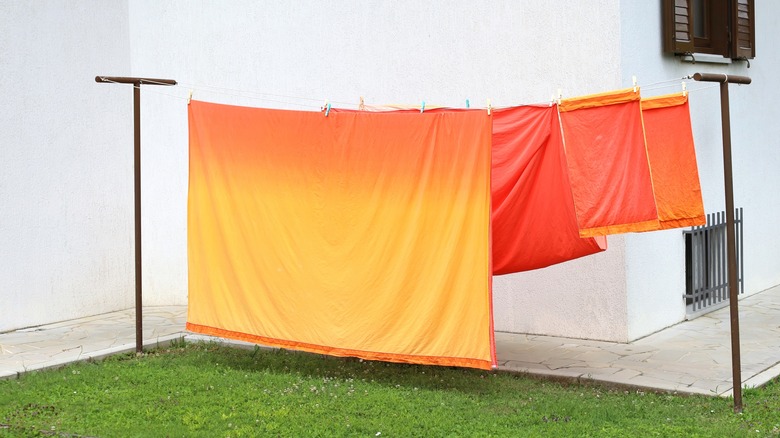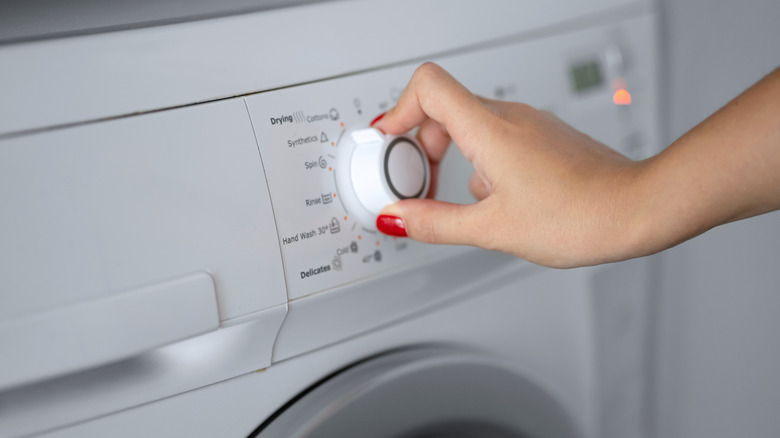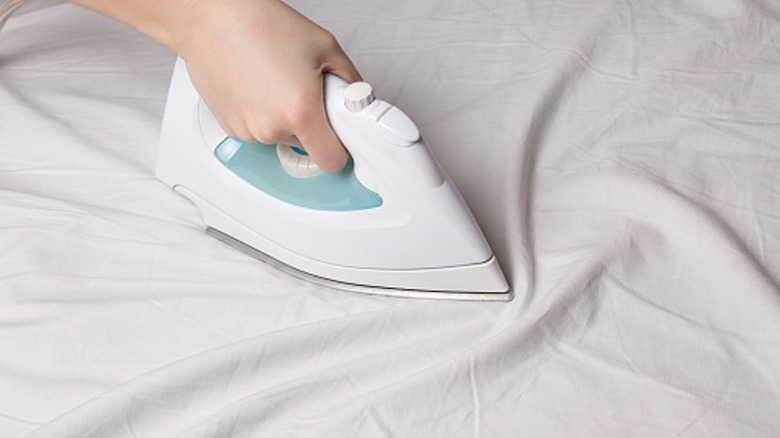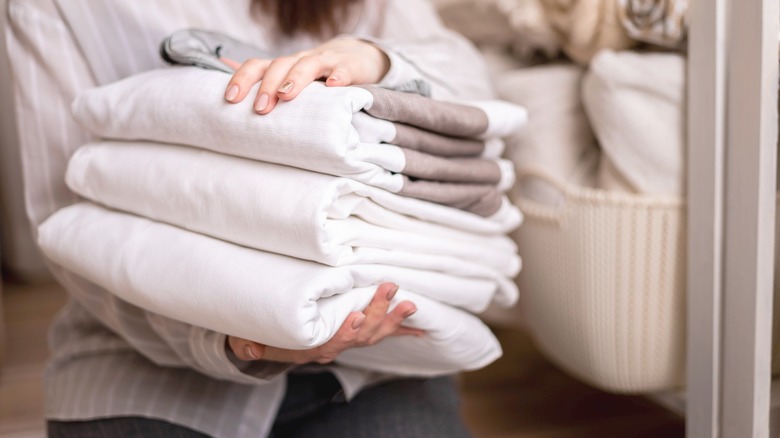15 Hacks To Soften Your Bed Sheets So You Sleep Peacefully
You put away your smart devices, set your alarm clock, and pull on your cute sleep mask to catch some Z's. Alas, a stiff and scratchy bed sheet will have you shifting forever more to find a comfortable spot and relax for the night. Suppose you're tired of hanging from the edge of your mattress and spending the better part of your bedtime looking for a relatively soft area to plop down on. In that case, it's time to take matters into your own hands and try out some hacks, like washing your sheets before use, to soften your bed sheets so you sleep peacefully.
But before we outline the methods to soften your stiff bed sheets, you must know why your old or new bed sheets feel uncomfortable to the touch. New sheets often feel coarse due to two key reasons. One, fresh sheets feel off due to the processes they undergo during their manufacturing journey. Two, the fibers haven't been broken down yet, so they feel stiff. Regarding your old sheets, overusing fabric softeners or subjecting them to harsh chemical detergents can have an adverse impact on their softness. Drying them at high temperatures or folding them aggressively could influence their softness, too. However, the good news is there are multiple cost-effective ways you can treat your bed sheets — both old and new — for a good night's sleep.
1. Invest in good quality bed sheets
You could try all the hacks in the world, but they won't make any difference if your bed sheets aren't good quality. For instance, opt for cotton sheets with a 300 to 500 thread count. But there's a sneaky thread count myth we should reconsider: a higher thread count doesn't guarantee a high-quality sheet. This is where fiber quality and weave come in. Opt for natural fabrics and steer clear of polyblends since they tend to trap heat and aren't as durable. As for the weave, percale, sateen, and twill are ideal for the summer, while flannel and jersey work best for the cold winter months.
2. Baking soda can help soften your stiff bed sheets
Baking soda isn't just a great tool to clean various types of surfaces in your house. It can also eliminate chemicals that are left over from the manufacturing of new sheets. In the case of old sheets, it'll loosen mineral deposits and remove residues. To use the baking soda hack to transform your scratchy sheets into silky luxury, pour ½ cup of sodium bicarbonate before choosing the hot or warm washing machine cleaning cycle. If you're dealing with a particularly scratchy set, it's a good idea to combine baking soda and water in a large container, like a bucket or bathtub, and let the sheet soak beforehand.
3. Adding a cup of white vinegar can work wonders
Detergent residues build up over time and influence your bed sheet's feel. Add hard water mineral accumulation to the mix, and you've got the primary culprits responsible for turning your soft bed sheets coarse. Under such circumstances, grab the bottle of white vinegar from your kitchen and measure out a cup. Now, constantly check the washing machine to drop in the liquid at the beginning of the rinse cycle, or simply add it to the fabric softener dispenser to bid your scratchy bed sheets goodbye.
4. Combine white vinegar and baking soda for extra softness
To sleep on sheets as smooth as silk, employ both white vinegar and baking soda— sans laundry detergent — while washing your bed sheets. Since these natural ingredients will get rid of dirt, mineral buildup, and soap residue, they'll leave your sheets feeling ultra-soft. All you have to do is add a cup of baking soda to the machine and select the hot washing cycle. When the rinse cycle rolls around, transition from hot to cold and add ½ cup of white vinegar to the sheets. Avoid adding the two ingredients together, or you'll have to deal with the resultant carbon dioxide-induced mess.
5. Let your bed sheets soak in an Epsom salts bath overnight
Dealing with incredibly stiff bed sheets — old or new? Under such circumstances, you should consider the Epsom salt hack before washing sheets for an ultra-comfy bed. Magnesium sulfate naturally softens coarse bed sheets by loosening up the fibers without damaging them. The only caveat? You'll have to let the sheet soak in an Epsom salt (50 grams) and cool water (in a bucket or bathtub) solution at least overnight. Don't have Epsom salts handy? Substitute with 6 tablespoons of borax or a few handfuls of table salt.
6. Go with a fabric softener when you need soft bed sheets stat
When you don't have natural fabric softeners, like baking soda and vinegar, handy, you might want to turn to the packaged fabric softener in your laundry room. Designed to soften clothes, the product — especially ones made to soften natural fabrics — will help you out in a bind. Simply use it as directed when washing your bed sheets, and you'll be greeted with softer bed linens. However, it's best to not always rely on this method to soften your bed sheets since the softener coats the fibers with chemical elements, affecting their quality and diminishing their breathability.
7. There's no substitute for good quality detergent
A suboptimal detergent is one of the primary reasons why your silky soft bed sheets feel scratchy with time. To illustrate, some detergents contribute to deposits while others might abuse the fibers. So, in case your old sheets have been feeling coarse, you might want to level a hard look at your detergent powder and replace a low-quality chemically-induced powder with better-quality options. Try to opt for eco-friendly options since they'll be gentle on your skin as well. If you're confused, check EPA's safer choice products list to make an informed decision.
8. Wash your new bed sheets several times
The answer to "Should you wash new sheets before using them?" is a resounding yes, especially if the sheets feel stiff and are constructed of natural fibers, like cotton and linen. It's also a good option to properly soften your bamboo sheets for optimal comfort. The hack is simple. Wash and dry your brand-new sheets two to three times in a row. This will help the fibers relax (and feel worn) and prevent detergent residue from building up. Best practice is washing the sheets gently using warm water and drying them on low heat.
9. Don't overload the machine when washing sheets
An important step you shouldn't skip before starting a load of laundry is to refrain from overloading the washing machine. An overloaded machine will return your dirty bed sheets as is, but with unsightly soap stains marring their surface. Worse, they'll give off a horrible stench. This also spells trouble for your bed sheet, as the disharmony among the laundry items will leach them of their softness and abrade their surface. So, check your machine's load capacity and try to wash the sheets in small batches to ensure they come out of the machine clean and smooth.
10. Discourage pilling to sleep comfortably
Although there are multiple ways to remove the tiny fuzzy balls contributing to coarse bed sheets, you don't want to commit to this activity on a daily basis. For starters, it'll take up a lot of your time. Plus, you'll have to be careful to avoid additional deterioration when using a razor or scissors. Thus, the best course of action is to discourage bed sheet pilling. To elaborate, wash and dry the sheets per the care label. Additionally, avoid washing them with lint-generating laundry items, like towels, or agitators like Velcro and zippers.
11. Dryer balls lend a soft touch to rigid bed sheets
Looking for a simple, budget-friendly, and environmentally-conscious way to soften your rigid bed sheets? Wool dryer balls can help. Since they keep bouncing during the dry cycle, they make it harder for the sheets to intertwine and tangle. This effort promotes air circulation and prevents unnecessary rubbing of the sheets. So, put two or three wool dryer balls in the dryer with your rough bed sheets to soften them. The cherry on top? This hack will reduce the drying time. If you don't have dryer balls handy, substitute them with clean (bonus points if they're new) tennis balls.
12. Let washed sheets take a sunbath and dry naturally
Even though drying your wet bed sheets in the dryer is quicker than air drying, the former can cause them to shrink. So, if you have the space and your HOA permits, let your washed sheets take a sunbath and flutter in the natural wind. This will naturally soften your bed sheets and allow the fabric's fibers to loosen up. However, don't leave them out too long, lest they look a little faded. A rule of thumb is to keep the side with the design inwards and let the other shoulder the sun's glare.
13. Drying your bed sheets on low heat will keep them soft
While you might be tempted to dry your sheets on the maximum setting and put them away as soon as possible, refrain from giving in to the temptation and practice patience since too much exposure to heat can contract the relaxed fibers (after the washing cycle). This will inadvertently make your bed sheets feel rough. So, make it a habit to only dry your bed sheets on a low heat setting. Further, remove them from the dryer as soon as the time is up, or it'll lead to coarse-feeling wrinkles.
14. Ironing or steaming might help soften crisp linen sheets
Ironing your washed bed sheets to work out the wrinkles might not be your idea of a good time. Although line drying can help, you might still have to deal with a few creases. In case you aren't prepared to compromise your sheet's softness and don't like ironing, use a steamer to loosen the fibers. Alternatively, hanging the sheet in the bathroom while you take a hot shower can help, too. Just ensure you position it so that steam reaches the fabric, but the water doesn't.
15. Store washed bed sheets properly to maintain softness
Although you want to fold and store your washed bed sheets as soon as they're dry, try not to get carried away. This means folding the sheets aggressively is a big no-no. You also want to avoid stacking too many sheets on top of each other, as the fibers can get flattened and feel stiff when you put them on your mattress. If you do need to rehab linens that have spent too long in the closet, light ironing will do the trick. Plus, take care to store the sheets in a cool and dry location.


